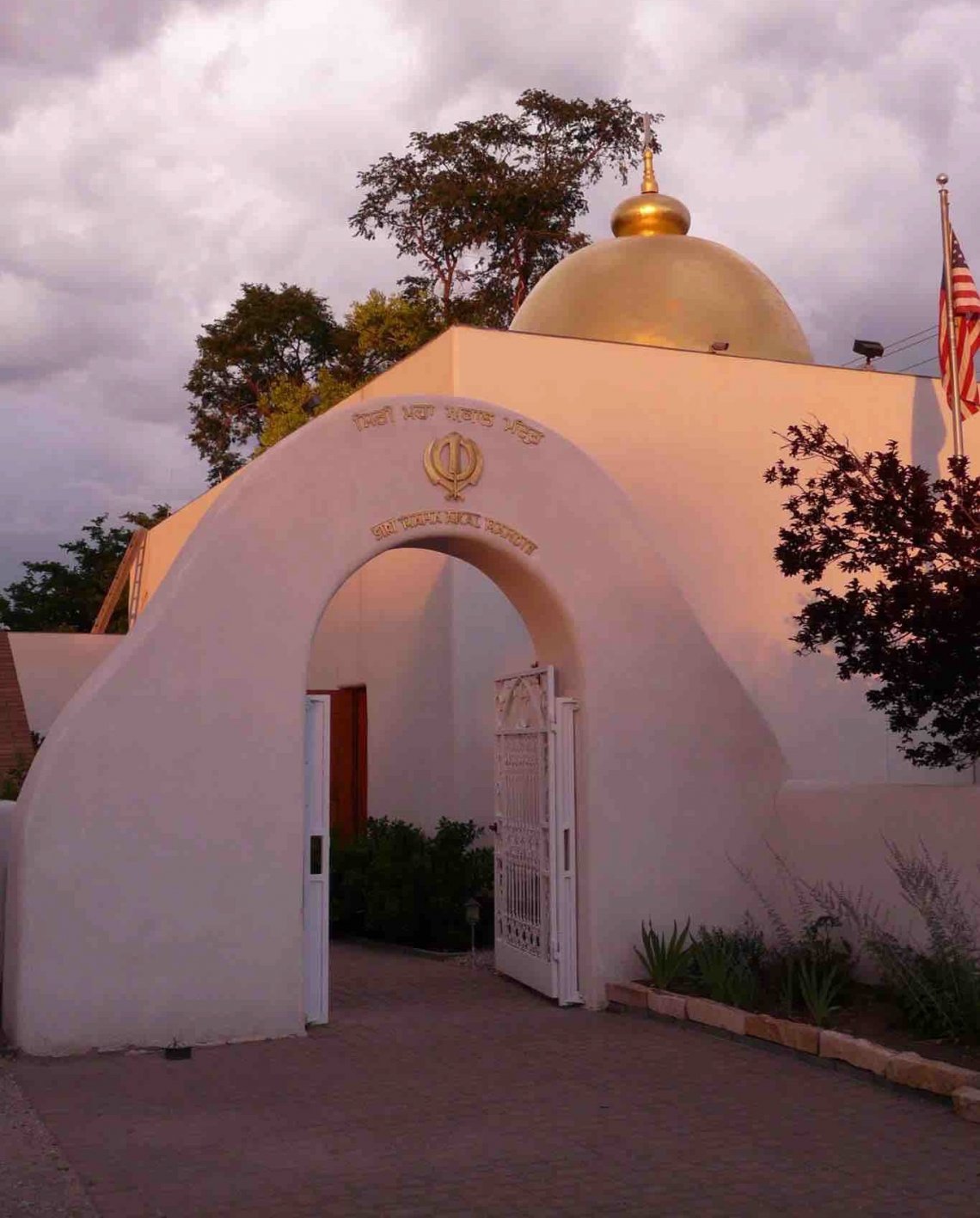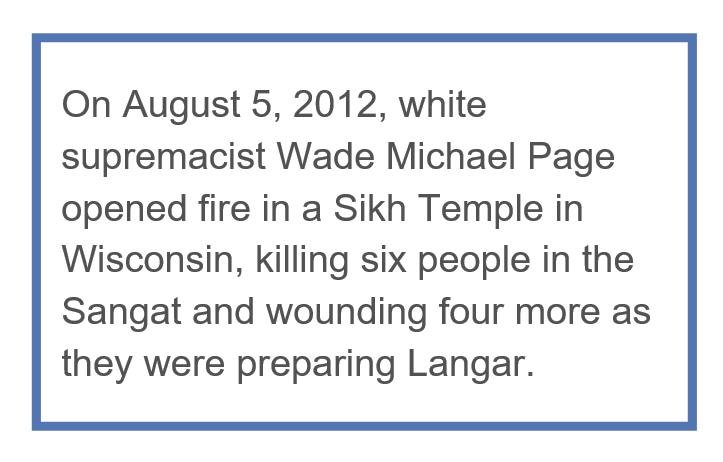WHY WE NEED THIS GUIDE
With approximately 30 million Sikhs worldwide, Sikhism is the fifth largest religion of the world. With our turbans, chunis, and beards, Sikhs are distinctive and highly recognizable. These are articles of faith and are an integral part of our spiritual path.
Because of our high visibility, Sikh Gurdwaras have always faced challenges in the communities we live in. Sikhs have a long history of being targeted for hate crimes, both in India and in other countries around the world. However, Sikhs are amazingly resilient and uniquely prepared to respond to this threat. Drawing upon our natural aptitude to defend others and stand for righteousness, the security of our Gurdwaras can be significantly improved with planning and preparation. This guide is intended to help you prepare your Gurdwara to deal with potentially dangerous situations in order to protect the Sangat.
Now is the time to make this a priority in the Sangat.
THE RIGHT TO REFUSE ACCESS
In many countries, the right to free exercise of religion is enjoyed by the population. This protects our Gurdwaras from arbitrary and hostile actions. In addition to this right to worship, Gurdwaras also have a responsibility to serve and protect the Sangat. This includes excluding those individuals who behave in a manner that offends our principles. It is legal and right to bar entrance to certain people including:
- Disruptive persons,
- Individuals who harass people in the Sangat,
- Individuals who are engaged in religious conversion, and
- Anyone who threatens the safety and security of the Gurdwara.
ENGAGING THE COMMUNITY
Serving the communities in which we live is part of the basic tenets of Sikhism. Gurdwaras should extend their outreach and maintain a connection with local community government, religious leaders, and residents. This can be done in many ways, including:
- Make services welcoming to people of all faiths and help strangers to comply with our customs such as covering their heads, removing their shoes, and eating in the Langar.
- Make contact with other churches and temples in the area to open a mutual dialogue.
- Be respectful of noise, trash, traffic, and other impositions on the surrounding community.
- Maintain a tradition of seva in the local community.
ENGAGING LAW ENFORCEMENT
Maintaining a secure Gurdwara environment involves developing strong relationships with local police. Local law enforcement should have a personal relationship with the Gurdwara and have a supportive understanding of the challenges we face. Some ways to develop a mutual relationship of respect and support are:
- Identify and get to know the police officers responsible for the area of the Gurdwara.
- Invite them to visit the Gurdwara and evaluate the overall security of the
- Host local law enforcement to give a lecture to the Sangat on how to deal with emergencies.
- Invite local law enforcement to Sangat events.

GENERAL SECURITY PRACTICES FOR GURDWARAS
he following are best practices1that will assist your Gurdwara in being safe and secure while maintaining an open and welcoming environment. Remember that local and global events may impact security. It is important to be proactive, increasing security during times of threat.
- Make safety and security part of the culture of the Gurdwara, involving staff, sevadars, and
- Designate a member of the staff to serve as Security Manager, responsible for the security protocol of the Gurdwara. Support the Security Manager in enlisting and training volunteers to act as Security Sevadars.
- Have Security Sevadars present during events to monitor activities in the Devan Hall, Langar Hall, parking lots, and all Sangat areas. The Security Sevadars are responsible to respond to security incidents and to make contact with emergency services when needed.
- Create response plans for anticipated security problems. Regularly assess risks and revisit your response plans to update them.
- Establish a “safe room” where Sangat and staff can lock the door and take shelter during a security emergency.
- Develop relationships with law enforcement, fire department, and other emergency officials.
 Provide security training to all staff and sevadars. Run regular safety and security drills, review how to respond to different emergencies such as a bomb threat, active shooter scenario, and other hate crimes as well as fire, earthquake, and natural
Provide security training to all staff and sevadars. Run regular safety and security drills, review how to respond to different emergencies such as a bomb threat, active shooter scenario, and other hate crimes as well as fire, earthquake, and natural
- Make sure the Gurdwara can be securely locked. Interior rooms such as Sukhasan, office, and other important rooms should also have the capability to be locked. Install alarms and security cameras if possible to deter theft and vandalism.
- Ensure that all areas of the outside perimeter are lighted, or can be lighted, at night.
- Encourage staff, sevadars, and Sangat to be alert for suspicious activity and have a way they can report it to the Security Manager. Maintain records of suspicious activity to detect patterns.
- Establish an emergency response plan for the Sangat that includes evacuation, shelter- in-place, and lockdown. Ensure that there are multiple exits from the Devan Hall.
SECURITY RESOURCES FOR GURDWARAS
The following resources provide additional information on dealing with and reporting hate crimes:
- Anti- Defamation League – http://www.adl.org/combating-hate/hate-crimes-law/
- Sikh American Legal Defense and Education Fund – saldef.org
- The Sikh Coalition – sikhcoalition.org
- Sikh Dharma International – sikhdharma.org
Click here to download this article as an easily printed handout
(Adobe Acrobat format)
